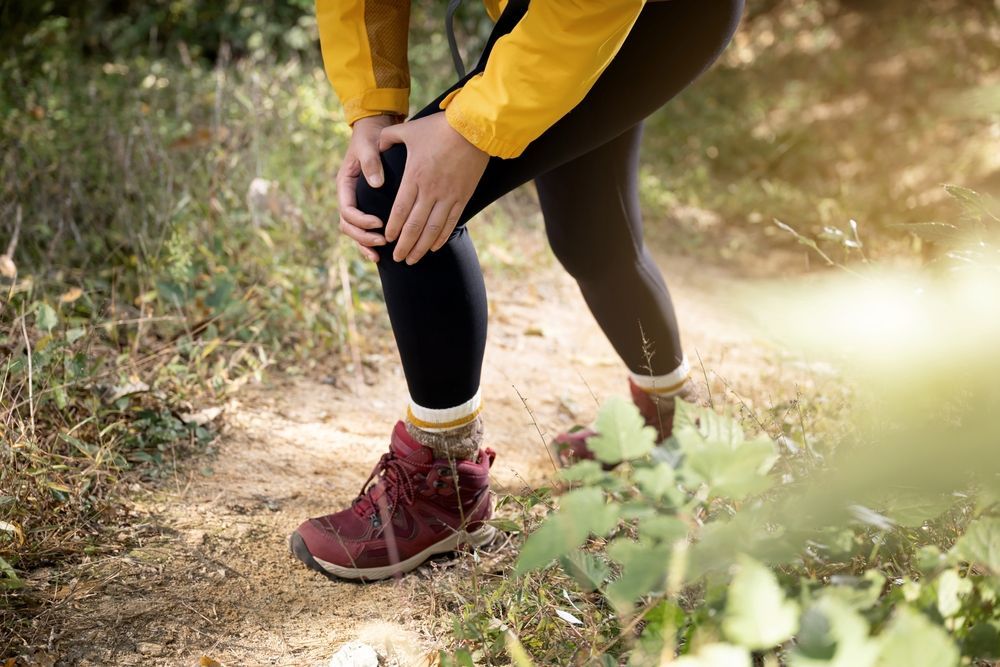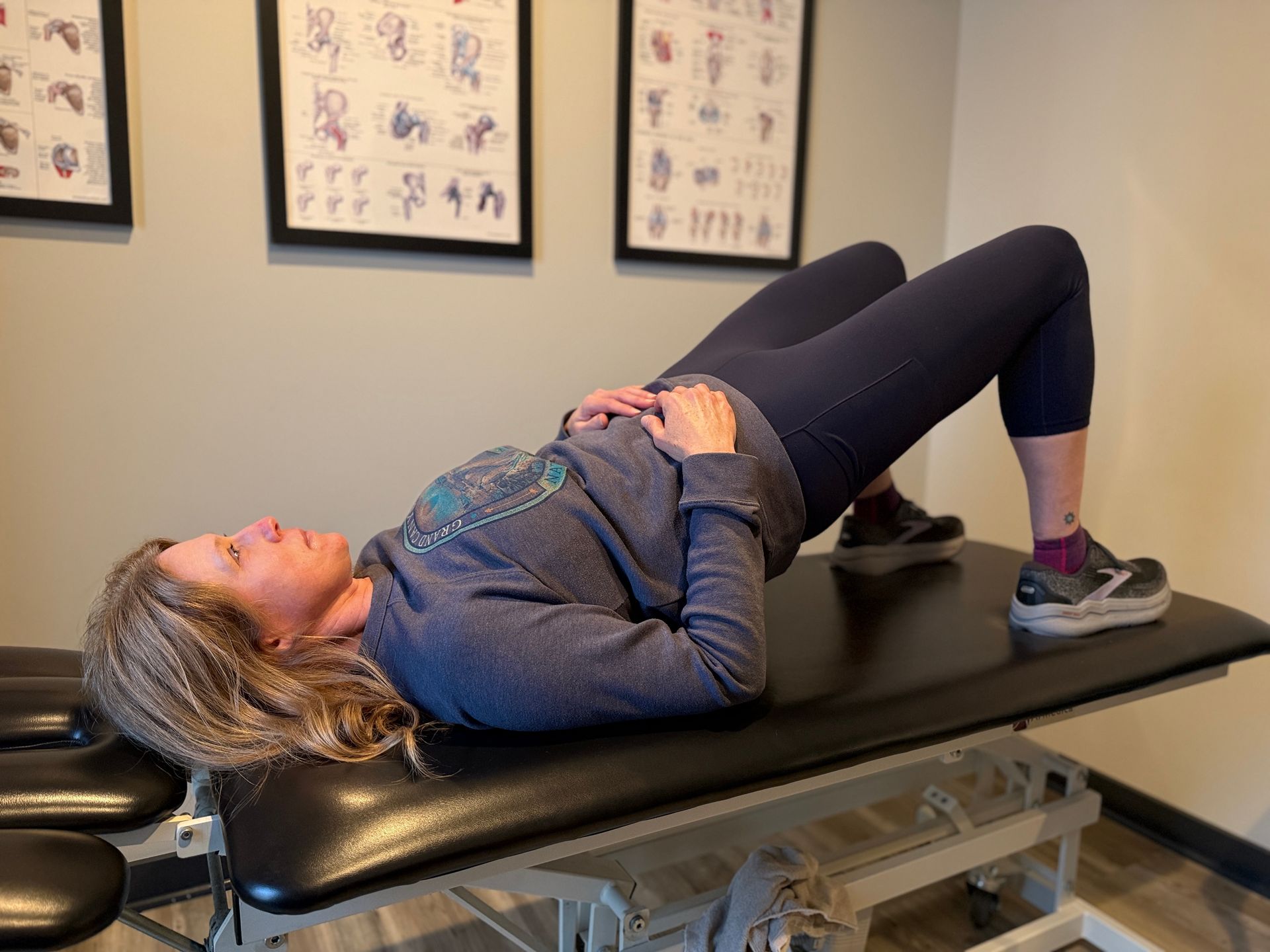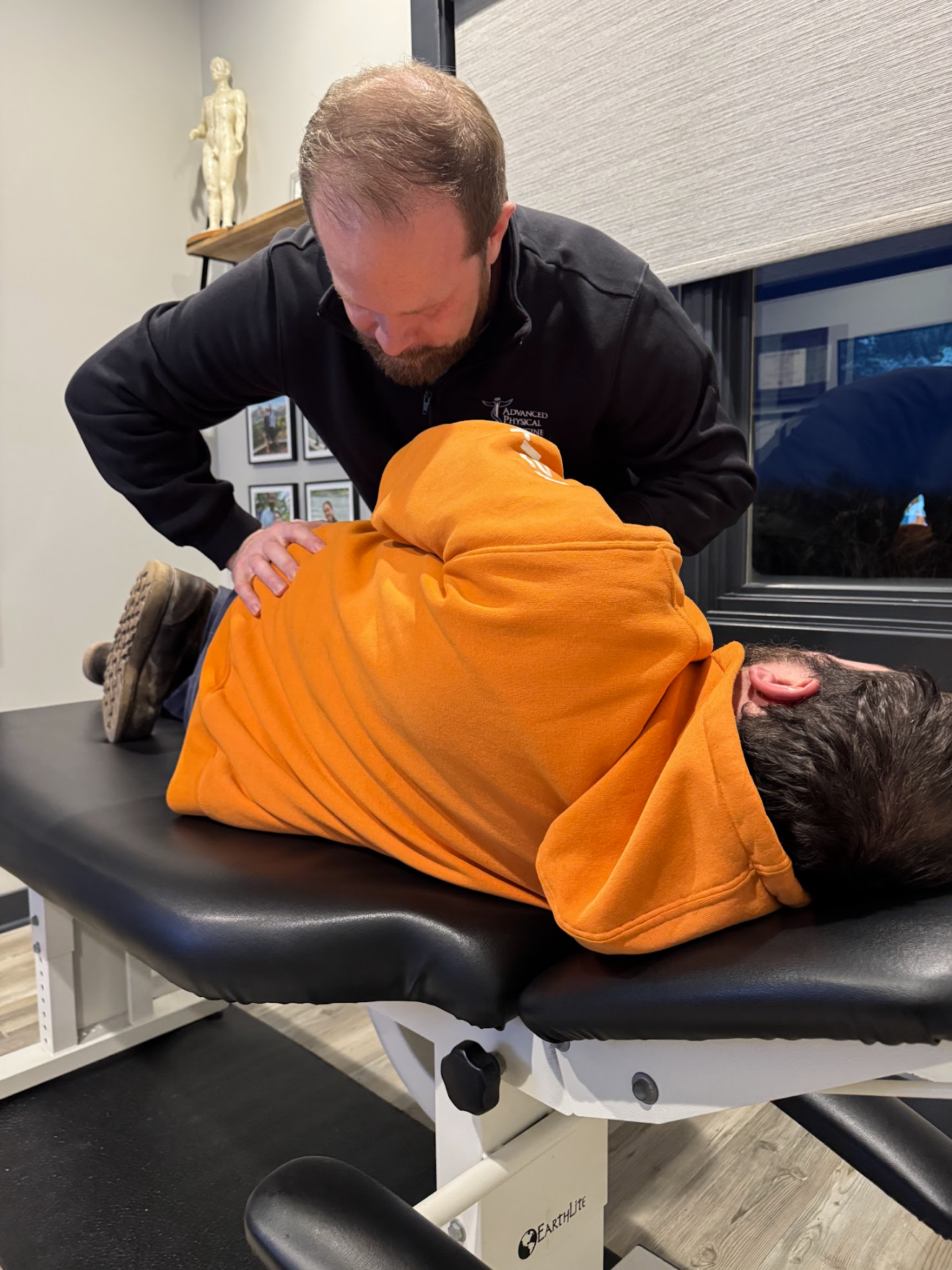Share this article:
Written by: Advanced Physical Medicine

From easy, paved trails that are perfect for beginners to rigorous, rugged terrain that is reserved for the most experienced adventurers, hiking trails have become some of the most popular hot spots around the country, including in St. Charles and throughout Illinois.
However, hikers should be aware of hiker's knee — a common affliction among the most avid hikers. Essentially defined as knee pain while hiking, a hiker's knee is a condition that results from traversing terrain that changes in elevation regularly. Knowing what hiker's knee is, what different types of knee pain might be related to, and who to turn to for help will ensure that you have a safe and enjoyable hike through the wilds of nature.
What Causes Knee Pain While Hiking?
Hiking a trail is more than taking a gentle stroll with a scenic view. It's an athletic endeavor — one that requires skill, perseverance, and determination. As a result, knee pain while hiking is fairly common, even among the most agile and skilled hikers.
These are the most common causes of knee pain while hiking:
Tendinitis in the Knee
Sometimes referred to as jumper’s knee, tendinitis in the knee is common among hikers who prefer rocky terrain. The uneven trails and rough terrain are particularly hard on the joints, which can put you at a higher risk of developing tendinitis in the knee.
Torn Meniscus
A torn meniscus is one of the most common hiking injuries, and it often occurs when a hiker is heading downhill on the trail. The meniscus cartilage can easily tear when the knee is rotated improperly, which sometimes happens if a hiker is jumping from one rock to another or navigating a rocky path.
Patellofemoral Pain
Patellofemoral pain, commonly referred to as hiker’s knee, is pain that occurs in the knee after a long or arduous hike. It is typically the result of weak muscles in the glutes or hamstrings, and it can make it uncomfortable to squat, jump, or climb — movements that are common while hiking.
Iliotibial Band Syndrome (ITBS)
While Iliotibial Band Syndrome, or ITBS, is not a knee injury, it is a common hiking injury that can result in knee pain. This occurs when a tendon in the pelvic bone swells up, causing pain from the upper leg down to the knee. It occurs most frequently among avid hikers or those who enjoy trail running.
Generally speaking, your hiking form, the speed at which you attempt to hike, and your experience with hiking will play a role in whether you experience knee pain while hiking. It's important to evaluate the course of the trail and the skill level required before you attempt to hike it.
What Different Types of Knee Pain Mean
Knowing what different types of pain in the knee means can help you quickly identify the problem and seek the proper treatment for your knee pain. These are some of the different types of knee pain that you may experience while hiking:
- Pain in front of or behind the knee cap. This is usually indicative of a hiker's knee.
- A pop or snap on the outside of the knee. This could indicate an ACL tear or ITBS.
- Pain, swelling, or limited mobility in the knee. This may be associated with a meniscus tear.
- Pain near or between the knee cap. This typically occurs when you have knee tendinitis.
How to Treat Knee Pain From Hiking
If you experience knee pain while hiking, or after you finish a hike, then you will want to seek treatment in order to reduce pain, prevent further injury, and restore your mobility. The treatment required will vary based on the condition that you have, so it is important to see care from a qualified professional who will deliver personalized results.
Physical therapy is one of the most common treatment options for knee pain, as physical therapists can combine holistic medicine and exercise therapy in order to reduce swelling, promote healing, and restore full mobility.
Tips to Prevent Knee Pain Before it Starts
In order to prevent knee pain while hiking, you should take the following measures:
- Stretch thoroughly before you begin your hike to prepare your muscles, ligaments, and tendons.
- Pace yourself throughout your hike. It's best to start slowly and build up, particularly as the terrain increases in intensity.
- If you are embarking on a trail with rocky terrain, consider using hiking poles to improve your balance and better distribute your body weight as you hike.
- Choose supportive footwear for your hike. Not only will this help your feet, but it will protect your knees as well.
When to Seek Medical Attention
You should not ignore knee pain while hiking, as it could be a sign of a more significant condition or severe injury. To prevent serious complications, you should seek medical attention if:
- Your knee is red or warm to the touch.
- You have heard a popping sound near or around your knee.
- You are in significant pain or discomfort that will not subside.
- You do not have full mobility in the knee.
- You experience pain both before, during, and after hiking.
The course and duration of treatment will vary based on your condition, but seeking medical care as promptly as possible will ensure that you get the best possible results in the shortest amount of time.
Let Advanced Physical Medicine Get You Back on Track!
At Advanced Physical Medicine of St. Charles, we believe that everyone deserves to enjoy a limitless, pain-free life. If you want to get back on the trail and overcome the residual pain from persistent hiker's knee, then now is the best time to get in touch. Our chiropractic specialists can create a personalized treatment plan that includes physical therapy services, chiropractic care, therapeutic massage, and acupuncture, allowing you to enjoy minimized pain and improved mobility.
Request an appointment
today, and find out how easy it can be to eliminate knee pain while hiking.
Connect with Us:











